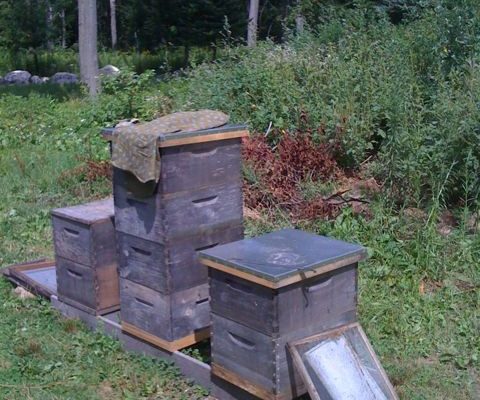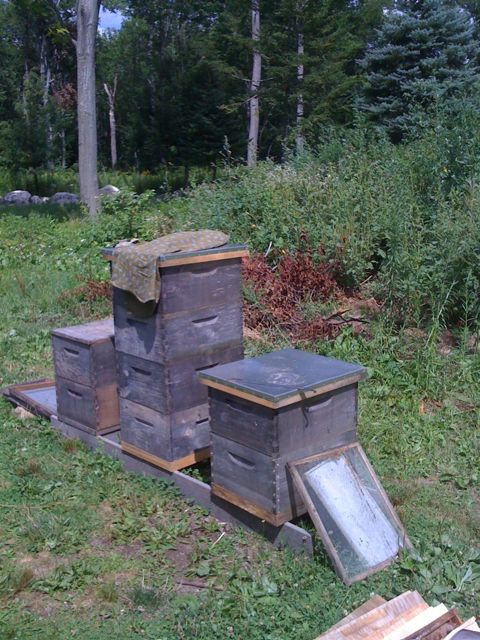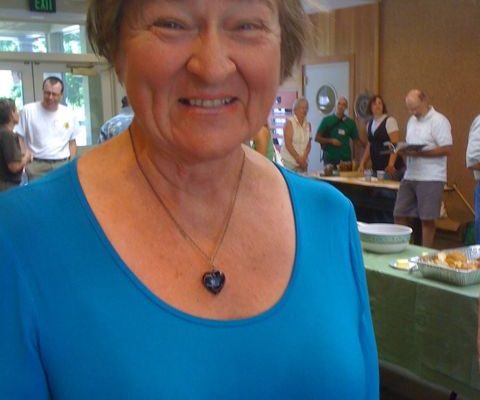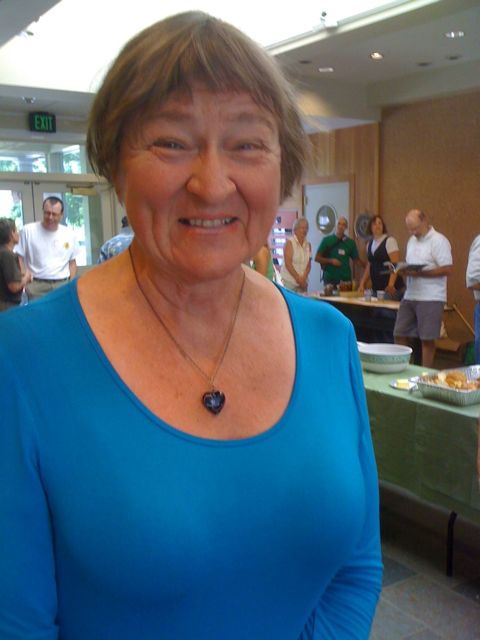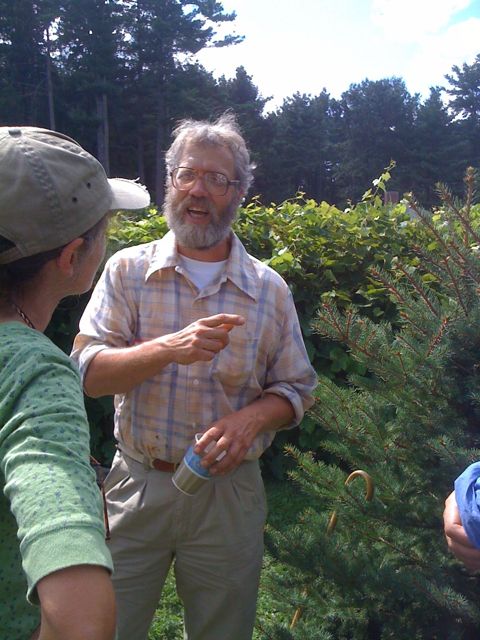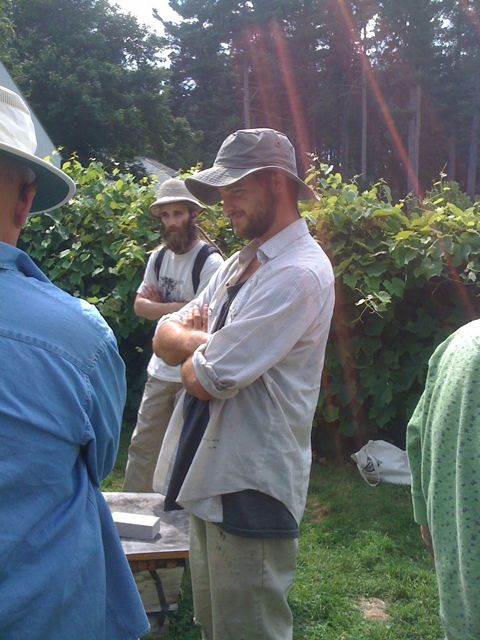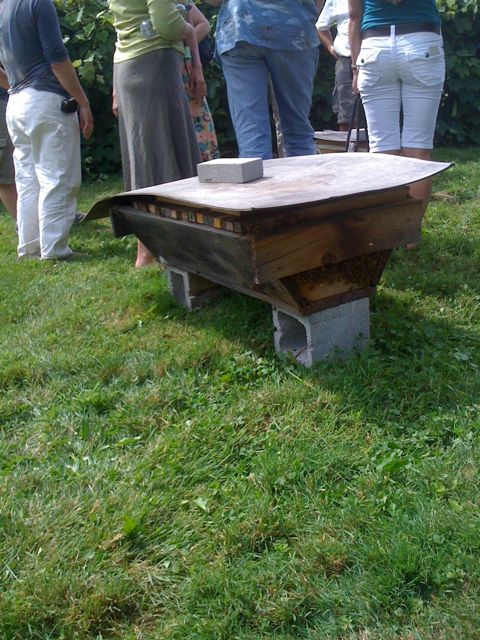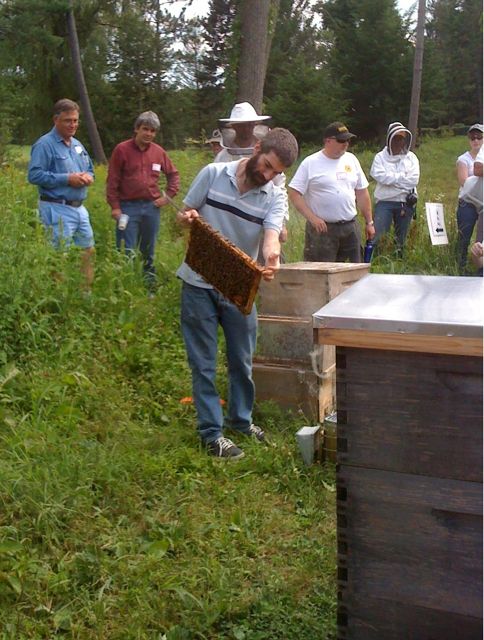Now that I’ve had a day for my brain to clear, I can offer a brief report of my responses to the 2010 Northeast Treatment-Free Beekeeping Conference: It was tiring. I mean…it was three and a half 13-hour days of programming. And that’s an awful lot of exhausting.
But it was also approximately 45 hours of bee school, and that makes for a much smarter beekeeper…as soon as all that information sort of settles in, that is. Right now, it’s free floating.
Okay. Maybe I’m still too tired to give you a good reflection. I’ll do it one day soon, though, yes? Because my emerging beekeeping philosophy continues to develop, and I know you’re on pins and needles wanting to hear about it. :)
Let me simply remind you of this for today: If you buy your honey from the grocery store, it probably comes to you from China, and the bees that made it were treated with some very serious chemicals inserted directly into their hive.
If you buy your honey from a local source such as a farmer’s market or from that nice old guy at the end of the lane, the bees that made it were almost certainly treated with the very same, very serious chemicals that were inserted directly into the Chinese hives. And even though the bottle says your honey is pure honey, it’s not. It’s full of chemicals that 99% of the beekeepers believe is necessary to use in order to keep their bees alive. And I’m serious about this shit. It’s appalling.
I tell you this because I am experiencing it first hand. I have been sold (and I am still in possession of) the assortment of chemicals of which I speak. They are in my garage near the trash can. They’ve been there for over a year. Every single solitary beekeeper I know—other than those with whom I gathered this week—use those chemicals without even thinking about it. When to treat the bees is taught in beginner’s bee schools. And then everyone wonders why the bees are dying.
It’s not the beekeepers’ fault. Most of them know no other way and have not considered alternatives. But there is another way. And it’s up to a small number of curious beekeepers who naturally gravitate to research and who are hell-bent on returning to natural beekeeping (which, I admit, it a problematic term as there is nothing “natural” about beekeeping) to change the thinking of an entire beekeeping culture.
Have I whet your appetite for more? I hope so.
Here’s what you can do to help, Reader:
- If you want to begin keeping bees, consider the very fun return to natural beekeeping. To do so, you can start by reading the wonderfully smart and surprisingly enjoyable Complete Idiot’s Guide to Beekeeping. It’s not for idiots. It’s for smart people, and it’s written by smart people whom I now know. They’re even smarter in person. The book series simply has a dumbed-down title. It’s a wonderful beginning point for those wishing to keep bees without the use of chemicals.
- If you already keep bees but want to stop the insane chemical applications and stop losing your bees every single winter and have healthier, faster, smaller, calmer bees, begin by reading the Complete Idiot’s Guide to Beekeeping. And join the Organic Beekeepers Yahoo group. And read Michael Bush’s delightful website (you can find the link on this blogroll).
- If you don’t keep bees but you want to eat pure honey made by happier, healthier bees that have not ever been treated by UNBELIEVABLY STRONG CHEMICALS APPLIED DIRECTLY INTO THE HIVE AND INTO YOUR HONEY, then please begin asking your honey supplier to consider the above two points. Gently and gently and gently remind your supplier each time you purchase your nice jar of honey that there is another way. It’s scary and difficult to change the way we do things…we all know that. That’s why we’ve got to be gentle. But it’s also very fun to do what we all know is right. It’s exhilarating. And your local beekeepers want to do it…they simply need encouragement. And they need to see others doing it. Which is where I come in. :)
Here’s one thing I’m thinking. I’m considering the paint-free approach to hive boxes. It saves time and money, and I think it looks kind of cool, too. What do you think, Reader?

